School Counselor Association Official Magazine



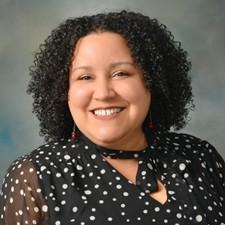
This school year as we practice equity work by empowering the profession and our students, elevating the voice of school counselors in the state as we advocate for students, their families, and the role of school counselors, engage in the work of academic success, social/emotional development, and college and career readiness along side of our students within our buildings and throughout the state, and energize our programs with new ways to connect, collaborate, and lead with our school communities, one of the things that helps us all to engage, elevate, energize, empower, and practice equity is our ability to exchange!
Exchange is one of the “e-words” of this year’s GSCA theme and may need a little more explanation to fully embrace its importance.
When I first thought of the word “exchange” for part of this year’s theme, I wanted to emphasize the importance of us exchanging ideas and opportunities across district and region lines. It is so easy to get caught up in our own bubble that we don’t seek that connection outside of it. It is also easy to get stuck in the mindset that ideas and support can only come from one group of individuals.
More than just a sharing of ideas, I think of exchange as connection, community, and change.
Dr. Sean Stephenson, motivational speaker who lived with Osteogenesis Imperfecta until the age of 40 said, “Communication is merely an exchange of information, but connection is an exchange of our humanity.” When we can go beyond just sharing a document or program but instead share our experience with the program, how it impacted students and staff and the why behind the use of a resource, that exchange of information becomes more about connecting our work with the humanity of our students and the human connection between school counselors uplifting each other as we engage in such important and at times challenging work.
 Laura Ross
Laura Ross
Building a strong and authentic community among school counselors means exchanging our on cultural perspectives and experiences. Chuck D, author, entrepreneur, rapper and a top hip-hop lyricist framed this idea in the perfect words, of course, “Culture is this thing that we can exchange among ourselves as human beings to knock aside our differences and build upon our similarities. Cultural exchange is the ultimate exchange.” As school counselors, if we ‘practice what we preach,’ and can actively participate in truthful and vulnerable cultural exchange with each other, we can build a school counseling community that sees our differences and similarities as assets so we can truly collaborate and support each other authentically. This kind of community allows us to have a support network that can bolster us in times of adversity and celebrate us in our triumphs.
School counselors are change agents and working toward systemic change can be overwhelming. When we can exchange knowledge, skills, culture, and support with each other we help each other in this change creation. It is change that happens beyond our offices, our school buildings, and our districts. We help create change throughout our state because “sharing an idea you care about is a generous way to change your world for the better,” Seth Godin, author, entrepreneur, speaker.
My hope for the rest of the 2022-2023 school year, is that Georgia school counselors will EXCHANGE with each other. Participating in exchange will help us do more intentional and impactful equity work. It will help us elevate the voice of our students and school counselors at all levels. It will help empower each school counselor and empower our students in their own successes. It will help us in engaged in the challenging and significant work we do daily and engage in the work of GSCA as an organization. It will energize us by providing a strong, interconnected support network that fosters authentic connections, builds community, and creates change across the state for the profession of school counseling and especially for the wellbeing and affirmation of our Georgia students. Please continue to exchange with GSCA throughout the year with webinars, podcast episodes, blog posts, Beacon articles, lesson sharing, social media, level and region networking and more!
“Just listening and going back and forth and exchanging ideas with people. It’s a beautiful thing. This is what’s really important ~.” LaKeith Stanfield, actor and rapper.

 Photo by Eugenia
Photo by Eugenia
 Marcia Teemer Marcia.teemer@henry.k12.ga.us
Marcia Teemer Marcia.teemer@henry.k12.ga.us
Does it feel like your school gets new students every single day of the year? Being an “outsider’ or having to re-integrate into new schools may lead to exclusion and low self-esteem (Park, 2014). How do you make new students feel welcomed into your building? Whether their parents are military, have gotten a divorce or the previous school just was not a good fit, new students will experience some stress and anxiety when switching to a new school.

I am one of the co-sponsors of my school’s Ambassadors. One of their responsibilities is to give new students a tour of the building. At our last meeting, we discussed the new student tour process, developed a welcome packet, and streamlined the process for new students. First, the new student and parent meets with his/her school counselor to discuss the transcript and classes. After creating the schedule, an Ambassador comes to the counseling office. Finally, the Ambassador gives the new student a tour of the building. All new students should receive a welcome packet (folder or envelope) that includes the following:
“Don’t settle for average. Bring your best to the moment. Then, whether it fails or succeeds, at least you know you gave all you had. We need to live the best that’s in us.”
 ~ Angela Bassett
~ Angela Bassett
• A welcome letter from the principal or school counselor. I personally think this letter should come from the principal of the school. The counselor can mail a letter home within the student’s first week.
• A map of the school. This does not have to be a masterpiece. It does need to show the important places in the building. If you do not already have a map of your building, ask an Art student to create one. You will be amazed at what they can do.
• For high school students, include your graduation requirement checklist. A bell schedule for your school. Indicate if your school is following a Block schedule or a Traditional schedule. Additionally, many school districts do not follow the same calendar. Be sure to include your district calendar. This is important.
• A list of sports, clubs and organizations along with whom the coaches and sponsors are for said organization. FAQ, be sure to include a FAQ sheet. This can be general questions, or you can be more specific with the questions. For example

• Who are the school administrators?
• What are the school colors, mascot, and motto?
• How do I request a transcript?
• How do I apply for dual enrollment? As the school counselor, you want to check in with the new student within the next three days. Check in with them the following week and again within the next three to four weeks.
I know things get busy but do it. Put them on your calendar or schedule them as an appointment. You could also host new student orientation twice a month to help with the transition process. Transitioning into a new school should not be a one and done encounter with the school counselor. We are the heartbeat of the school and being new is hard. Especially, if you have a huge school. Once the student leaves the counseling office for the tour, email his/her teachers. Let them know, they have a new student coming to their class and ask them to pair the new student up with a peer friend. The key is to arm our new students with as much information as possible to make a smooth transition. This transition welcome packet and process is directly aligned with the American School Counselor Association (ASCA) Mindset Standard M3. Sense of belonging in the school environment. It is also aligned with Behavior Standard B-SMS 10. Demonstrate ability to manage transitions and ability to adapt to changing situations and responsibilities. Finally, this transition welcome packet and process positions you to earn a Level III on your Counselor Keys Evaluation System (CKES) for Performance Standard 7: Positive Learning Environment! Park, A. (2014). Switching schools may give your kids psychotic symptoms. Time USA, LLC. https://time.com/8854/study-switchingschools-may-make-your-kids-psychotic/

I have always loved the holiday season. There is something magical about the holiday season. The scenery, the amazing scents, and the kindness that is shown throughout the season. I grew up in another country and each holiday season I got to learn about all these amazing different cultures and traditions. One thing I saw ring true in all these different traditions was the importance of family and kindness. These are traits I hope to teach my children and my students.
Unfortunately, so much of the season is wrapped around who is getting the biggest and best toys and not on spreading kindness. So how do we as school counselors help transition our students from the “give me” mentality to spreading kindness?

Give Back
Throughout the holiday season, develop a way for students to give back to those around them. Maybe this is through a food drive, clothing drive, or some other charitable donations. Another suggestion is to have a “angel tree” where families and staff can “adopt” a child in your community and sponsor them for Christmas. I helped to organize this one year and my school loved to help those in our community.
They never knew who exactly they were helping since all children were assigned a number, but they loved coming together to support one another Focus on Kindness/Empathy
In your schools focus on kindness and empathy during the holiday season. Teach classroom lessons, give teachers a kindness question of the day to discuss with students, read books, create a random acts of kindness challenge, or create a paper chain of kind acts that have been done. There are so many ideas that can help promote kindness and empathy in our schools. Be creative and find what works for your school.
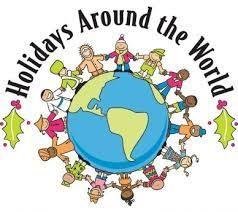
‘Tis the Season…for
A great way to help broaden students' perspective on the holiday season is to help them learn about other cultures and how they celebrate this season. Growing up, this was my favorite part of the holiday season. I learned about different traditions around the world, tried different foods, explored different languages, and got to know and respect other people. To this day, I still love learning about different cultures because of this foundation that was built in my childhood.

As school counselors you can teach lessons, read books, listen to songs, etc. Students could also work together to research different cultures and present them to the class. Be creative!
In this society were there is so much focus on “give me”, find ways to promote a culture of empathy and kindness in your school. During this season focus kindness and empathy in your schools this year and see how it impacts yourself and your students!
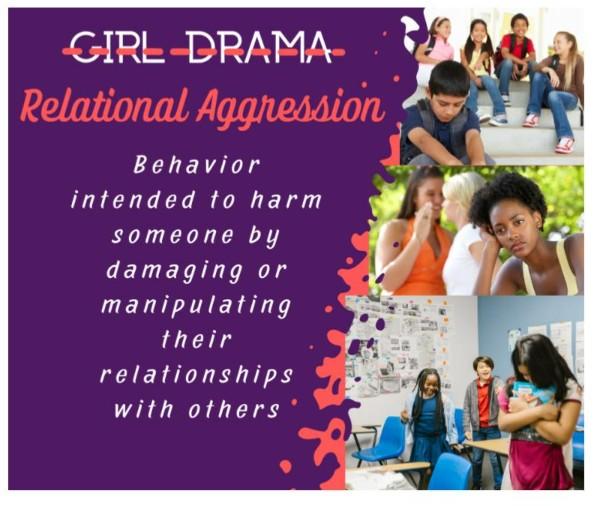
 Jessica DeBarry jdebarry@mcintosh.k12.ga.us
Jessica DeBarry jdebarry@mcintosh.k12.ga.us

I have had my fair share of classroom horror stories as someone who has worked with children for a long time. That one student who refuses to sit still, the interrupting 6-year-old, the “they are touching me”, she's in my square type days where at the end you are not completely sure if you did your lesson or just redirected behaviors. In grad school I remember being told numerous times that as school counselors we are not disciplinarians; however not many of the classes mentioned how we as school counselors who are expected to at times deliver classroom lessons manage the many personalities that make up a classroom. This is where classroom management skills are utilized.

Classroom management has a wide variety of skills and techniques that teachers use to keep students organized, engaged and attentive. These skills and techniques help students stay on task and be productive. In my graduate program there were many fellow classmates who had little to no classroom experience and the few interns I have had mentioned that classroom management is one area they are lacking skills in. As I have worked with students ranging from Kindergarten to HighSchool I have added different classroom management techniques that I have found handy in working with a diverse group of students. Here are just a few that I use consistently and that my students enjoy.
This is popular with my older elementary school students; third through fifth. They like it enough that if I forget to put the “pizza” on the board they ask for it. This is simply a circle divided into four or five slices. At the beginning of the year with my “Meet the School Counselor” lesson I explained the expectations of my time in the classroom.

If a class as a whole meets expectations throughout my lesson, they earn a “pizza slice”. Each class has a certain goal they are working towards for example 3 out of 4 slices. If they earn their “pizza slices” they gain a special treat at the end of the lesson.
Kindergarten through second grade love the magic word. This year the magic word is macaroni. If they hear the magic work, they say cheese (their magic word) and I quickly follow this with FREEZE. Students love being able to say their magic word (cheese) to be able to freeze. The expectations are for them to stop what they are doing and put their eyes on me. There are days where I say macaroni a lot but being consistent helps students quickly follow through.

The other part of classroom management is knowing when you may have to remind students that the time in the class with you is a vital part of their schooling. No one likes to be called out even when they are not meeting expectations. Often calling out a student who is not following classroom rules can create a bigger problem. One way to combat this is to provide praise for those students who are following classroom expectations “I like how table 4 is quietly working on their assignment”. Most of our students are seeking that praise and those who are not following expectations are quick to follow suit to get your positive attention. Our school uses a token system to reward students for following expectations and I use tickets to visually give students who are meeting expectations a silent “kudos”. They enjoy the ability to gain a token to shop our school store and that silent visual not only rewards following expectations but gives those students who are not a reminder of something they are working for. Get with your school administrators to see how you can implement school wide systems into your classroom management.
What about that one student who just can’t get it together? I have found that giving students time to reset allows them to get back to our lesson quickly. This can be a quick errand to my office, a leadership role or a whole class quick minute brain break to get everyone back on track. After class I have found it important to talk to that student one on one to see how I can better help them during our time together in the whole group. Unfortunately, there have been times when a student had to be removed from the classroom due to unsafe behavior. As their school counselor I do not write them up but will make a point to talk with this student individually after they were removed and before the next time I am in their class. We problem solve together to increase their chance of success in the classroom.
With kids, consistent routines and expectations are key in having a successful classroom lesson. Work with your teachers to build your own classroom expectations when you have to push into their classes, they will have classroom expectations that can be included with your own. Additionally, find a teacher whose classroom management style you like and ask them if you can observe them. There is a plethora of classroom management professional development available online and through the Department of Education but the best way I have found to enhance my classroom management skills and techniques is trial and error. Lastly, there are going to be times when no matter the skills or techniques it is just one of those days. Give yourself grace, practice self-care and keep moving forward. Remember every day is a new day. “Without community, there is no liberation…but community must not mean a shedding of our differences, nor the pathetic pretense that these differences do not exist.”
 ~ Audre Lorde
Photo by Sina
~ Audre Lorde
Photo by Sina
School counselors hope to empower students every day. Through our advocacy to support students in achieving academic and life success, our passion for seeing them succeed shines brightly. We work to dismantle oppressive systems and remove any other barriers in the way of them reaching their full potential. While we spend significant time delivering our comprehensive school counseling program to students and hoping they benefit from our services, we might not always think about what we can learn from them about robust empowerment strategies. A look at a local Georgia student group reveals the necessity of student voice in creating systemic change and provides a unique model for school counselors in how we can work together as teams with our students to empower and promote the civic engagement that is a vital life and college and career readiness skill.
Georgia Youth Justice Coalition is a group of students who organize in our state for a better future for ALL. Just like school counselors are supposed to ensure we meet the needs of all our students, GYJC envisions schools where no one is excluded, and everyone feels a sense of belonging. The group offers incredible trainings and action-centered events aimed at students but with considerable value for school counselors while creating an opportunity for engagement with students on a different level. GYJC’s events, though not geared toward adults, often provide practical ways for school counselors to develop valuable skills like building communities of care and centering equity and antiracism in our work.
The youth in GYJC go to the State Capitol to advocate for legislative changes impacting school counselors directly such as adjusting the budget to add more school counselors and decrease the school counselor to student ratio to ensure equitable provision of our services. We should show up and do this important work with them! Even if we cannot take the day off to attend the Capitol in person or live too far from Atlanta, GYJC offers alternative options for participating and forming coalition like letter writing, phone calls, teach-ins and rallies that school counselors could engage in to boost the reach of the hardworking student group.
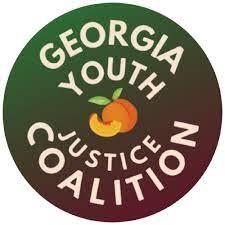
As focused on the current sociopolitical climate as we should be if we are adhering to our ethics, they remind adults that


“counseling shortages and whitewashed history are a threat to children & communities. Our future is worthy of investment - not just for the wealthiest and whitest. Every child benefits when we build schools that treat workers well, support marginalized & impoverished youth, and reject political fear mongering… Despair and doom come knocking at our door, but we’re still here to organize out of love for one another. From the classroom to the capitol, the Georgia Youth Justice Coalition is honored to carry on the work of those who came before us. A better world is possible if we can build it together.”
Building a better world together is a beautiful notion for school counselors to consider. As we talk so often about the ways in which we aspire to improve the lives and worlds of our students, how much more might we accomplish consulting them throughout the construction process? Since GYJC is student-led and focused, not everything they offer is appropriate for school counselors to join. However, when they hold events and promote actions where adults are encouraged to attend, I gain immense knowledge of student needs and aspirations and identify new ways to advocate and fight injustice. Getting involved with GYJC’s efforts reinvigorates my passion for honoring and amplifying student voice and exposes me to a skillset I would not gain elsewhere. For school counselors looking for ways to strengthen their practice in the areas of advocacy, antiracism, equity and systemic change, check out what our kids have to say about it all!
(GYJC does work all across Georgia. Their LinkTree is https://linktr.ee/younggajustice and their website is https://www.georgiayouthjustice.org/ )
~ Kalynn Bayron“Do not be silent. Raise your voice. Be a light in the dark.”Yolanda Duncan, Yolanda.duncan@dooly.k12.ga.us
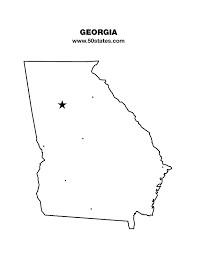

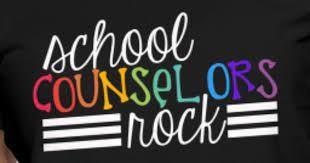
As part of my duties as a school counselor, I am charged with helping my middle school students develop life, learning, and career competencies. Whether that is teaching them about time management, relationship building or conflict resolution, these social and emotional learning concepts help students become oriented in getting employed but also remaining employed. However, as I reflect on my job of teaching my students on how to become employable, I think about WHO am I preparing my students to gain employment from. Not only do I have to teach my students those key employability skills, but I also have to make connections with employers to hire my students. I have to be engaged in networking with agencies, corporations, and individuals who would be willing to take a chance in hiring my students. My engagement with these employers provides a win-win situation: a win for the students to get possibly hired and a win for me as I make possible long-lasting connections with these employers for all of my students.
This past summer, I was given the opportunity to participate in an externship at a corporation; of which, I gain knowledge on the history of the corporation, the people that work there, and the skills, knowledge, and qualifications to obtain employment there. I was there for two days and within those two days, I was able to network and build connections with those I met. The individuals I met even offered to come to my school/school district to teach our students about the various positions and their responsibilities. In my professional opinion, having the employers in my schools talking to my students give the students exposure to different careers they probably would not have known. It also can energize my students to choose a career just by being exposed to it.
The Externship: from a school counselor's perspective
With this opportunity I was afforded, it energized me to be more steadfast in developing my students to be employable but also better individuals. Professionally, I was excited that I can introduce new careers to my students and how their skills can be aligned with certain unfamiliar career clusters. Personally, the externship allowed me to gain an appreciation of those in that line of work just by me spend a couple of days with those in that industry. Leaving the externship, I was truly energized with doing the work of building student life and learning readiness mindsets, but simultaneously, building career readiness mindsets by exposure.
My work as a school counselor is centered around the American School Counselor Association’s Professional Standards & Competencies as well as the Georgia Student Competencies for School Counseling. These frameworks are what drive my approach with students each year as they are being prepared for post-secondary life. Each year I learn new mechanisms on how to reach my students where they are and attempt to get them where they need to be. This year was a guided by the charge from our Georgia School Counselors Association’s president, to “Follow your Butterflies”.
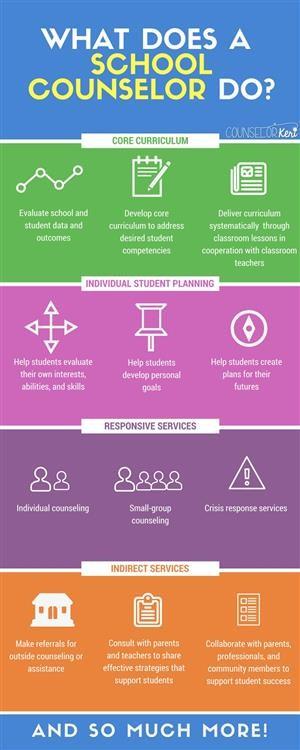
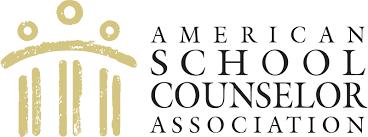
This year, I am learning each day, that my butterflies are centered around getting my students excited about understanding their natural skillsets and how those skills can be used as possible career choices. With the externship experience, I felt energized after making connections with the employers and felt a commitment to engage in future connections with other corporations. These future connections will build a network of potential career opportunities for my students.



“The things that keep you comfortable no longer serve a purpose in your life. Now it’s time to adopt new habits that are going to elevate you higher.”
~ Ash AlvesYoga. It seems like a new buzz word. Doctors often tell people who need to exercise and lower stress to “try yoga.” Soo…what is yoga really? Well, I would like to start off with what yoga is NOT!
It is NOT a religion.
It is NOT a culture.
It is not a Way of Life.
The Collins English Dictionary ( https://www.collinsdictionary.com/dictionary/english/yoga) Defines yoga in this way:

“Yoga is a type of exercise in which you move your body into various positions in order to become more fit or flexible, to improve your breathing, and to relax your mind.”
In Hindi the word “yoga” means to join or unite. Through the practice of yoga one begins to join or unite their breath to their movement. This is why it’s called yoga. I like to consider yoga as a more in depth understanding of stretching and the natural benefits that come from taking care of your body, mind and soul.
Child Light Education Company offers training for certification in a class called “Yoga and Mindfulness for Teens and Tweens.” I personally have benefitted from this certification. I have been able to use my own philosophy related to yoga and mindfulness to be able to share it with students in a way that will positively influence and enrich their academic experience.
According to Karen L. Michaud-Holland RYT, “Yoga offers tools to empower you, and cultivate positive relationships that invoke a sense of trust and safety for your students, and to allow them to be who they are without judgement.” This is a process, and the sense of trust and safety is established through the progress of each student. In a middle school setting, I created a stress management club, where students are able to attend as needed to learn tools to handle stress, anxiety, and life.
What is Yoga and How Can Yoga Elevate Self Esteem Tierney Langdon tierney.langdon@gcpsk12.org
Stress management club meets once a week after school from 4:30 to 5:30. During this time students learn strategies and tools for body awareness and mindfulness. Students begin the club feeling a bit awkward with the breath and quiet meditations. After the first meeting, the students who attended became excited for more stress management techniques. Of the students in the group, data shows that more than half of the students improved in their classwork performance. Teachers also started to notice the students in the stress management class willing to participate more in class and encourage others to participate as well. I enjoyed watching the students' confidence grow throughout the school year, with the help of the stress management club.
I look forward to continuing to offer a stress management club at my school. I see the benefits that mindfulness and yoga have had on our tweens and teens. I see it as an opportunity to create foundational skills for the students that will lead to a healthy mindset and positive decision-making skills. Students begin to have a toolbox of strategies that they can carry with them throughout the day. This not only improves their confidence but gives them a lifelong benefit to handle stress.

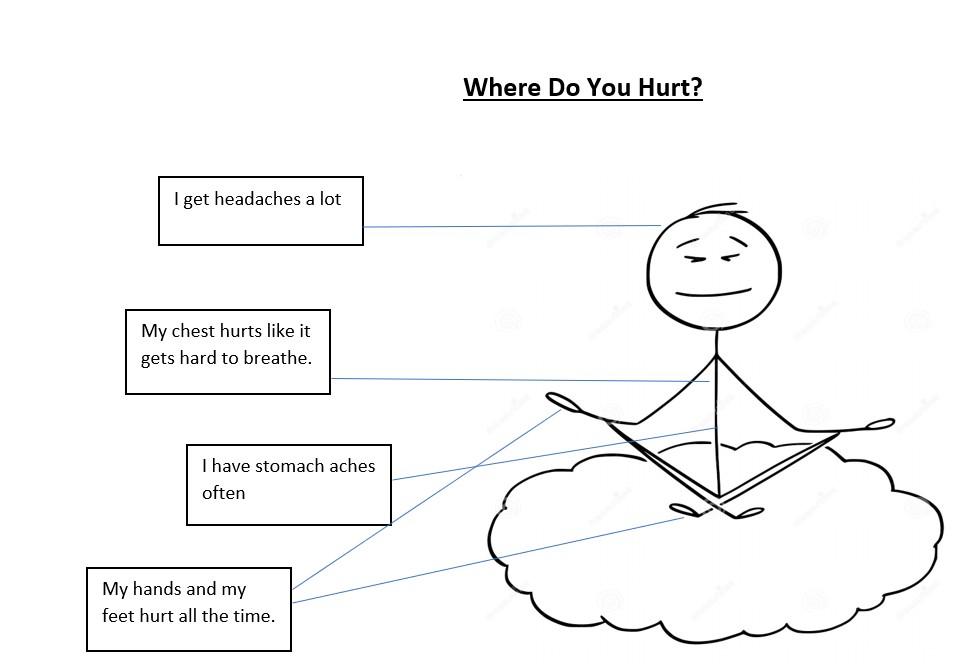 Ricardo Lyons-Alvarez, ricardo.e.lyons@gmail.com
Ricardo Lyons-Alvarez, ricardo.e.lyons@gmail.com


It’s no secret that school counselors are advocates for the students that we serve. However, in some cases, counselors get pulled in many different directions and lose time to non-counseling duties such as lunch duty, substitute, 504/RTI/MTSS coordinator, etc. While there are some fair-share duties that school staff must all assist with, school counselors may end up with a list of duties and responsibilities that take away from the main objective: serving the students in the school. Because of this, school counselors must advocate for their school counseling program. When people think of advocacy, they may think from a legislative standpoint, but this article will provide different ways school counselors can promote their programs at a local level. School counselors can directly engage staff while advocating for their program. Here are the steps that will be outlined in the article: Developing relationships, providing examples of how counselors can help achieve goals, being visible in the schools, and using data to promote your program are just a few of the ways counselors can engage others while empowering themselves.
Building Relationships Through Engagement. Whether it is a brand-new school counselor or a veteran with years of experience, developing relationships with teachers and administrators can be a huge step in promoting a school counseling program. Learning about the staff and letting the staff get to know you can help lower defenses and can help foster positive working collaboration, just as it would with students and parents. It is also a great time to learn about the goals of the teachers or administrators for the year and can help counselors align their goals. A positive relationship would also allow school counselors to get a better understanding of the teacher and their environment and create alliances with other members of the school community, giving school counselors more opportunities to promote the school counseling program!
Once those relationships have been established with the staff, school counselors can show how their programs benefit the teachers. When teachers and administrators see that counselors share their interests, they may be more enthusiastic about the program. An example: an elementary school counselor and one of the homeroom teachers talk about their goal to increase The Georgia Milestones Assessment System (GMAS) scores for their 3rd grade homeroom this year, but it has been frustrating because there have been constant interruptions in class (students distracted, arguing with one another, etc.) The counselor can advocate for helping the students while aligning with the teacher’s goals.
Engaging Your Staff While Empowering Yourself: Advocating for Your School Counseling Program Within Your School
The school counselor may suggest classroom lessons on study skills and resolving conflicts, small group sessions on social skills and selfcontrol, hosting parent nights inperson or virtually on the importance of GMAS, and tips for the night and days before GMAS, etc. The school counselor has shown how they can help the homeroom teacher with their yearly goal through the school counseling program while advocating for their program.
Example 2: the assistant principal approaches the school counselor in the morning, stating a teacher is out and they need the counselor to watch the class as they do not have a substitute available. The counselor has built a positive relationship with their administrator and wants to help but is not a substitute teacher and has a small group in the morning.
The counselor states they have a group session in the morning and asks the administrator to find someone to cover in the beginning. Once the group is over, the counselor offers to come and do a lesson to cover some more of the day while the admin works on finding a sub. The counselor then goes in and does an impromptu lesson based on the needs of that class. The counselor also uses some time to build stronger relationships with the class and could even do an emotional check-in with all of the students to address any individual or classroom needs.
Are counselors substitute teachers? No. Are counselors still asked to cover classes and expected to do so? Yes. Of course, counselors want to stay as close as possible to the 80% to 20% ratio when it comes to their use of time. However, approaching this with the "counselors don’t do that" idea may do more harm than good. Instead of pushing back with what counselors don’t do, school counselors can showcase what they can do and how they can help in an instant.

The more a counselor is seen, the better stakeholders understand what they do, and this works with staff as well. The more the school staff sees what a counselor does, the better they can understand the role. Of course, this is not guaranteed, but it can help. There has been a negative perception of counselors in the past; they sit around and talk about feelings; they are in their office doing nothing; teachers don’t see them, so they don’t understand what they do. The truth for counselors is that teachers may not see them as much because of the many hats counselors wear, including non-counseling duties like RTI and 504 coordinators, testing coordinator, and substitute, to name a few. So how can a counselor engage staff and be more visible?


Be visible - School counselors can physically engage staff and showcase their program in a myriad of ways. Some examples can include classroom check-ins, staff check-ins, guests at Professional Learning Community meetings (PLCs), collaborative meetings with teachers and/or admin, as an advocate for students at conferences or annual meetings, and presentations at staff meetings. This does not even include when they see counselors respond to individual, group, or school-wide crises. Being digitally visible gives staff a better understanding of the counseling program at the school. Virtual meetings, electronic check-ins through tools like Google or Microsoft Forms, virtual training and parent nights, emails centered on the social and emotional well-being of students and staff, and providing a wealth of resources through emails, social media, and a school counseling website can help staff and other stakeholders interact with the school counseling team and gain allyship.
Data Will Astound Them. Data can answer a lot of questions staff may have when it comes to the school counseling program. Counselors can use their data to address concerns or to advocate for themselves. Let’s say a teacher is pushing back on a counselor pulling a student because they are struggling in class. The counselor already has parental approval to pull the student out, but the teacher is resistant. "I understand that Ricardo needs to be in class and is struggling academically, but you mentioned he struggles to stay at his desk. I have been doing a self-control group, and in the past, teachers have seen a strong decrease in impulsive behaviors and an increase in their grades.
School counselors can find ways to engage staff in their schools and districts while also empowering themselves and advocating for their school counseling program. Through relationship building, defining the school counselor's role, being visible to students and staff, and collecting and sharing data, school counselors can collaborate with staff, gain allies to help promote the school counseling program, and create a stronger, more comprehensive plan at a local level.

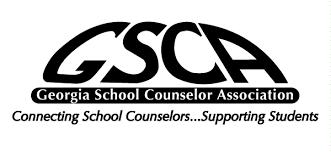
Greetings to all retired counselors! Are you looking for ways to feel productive and energized again?!! I thought so!! For those newly retired, do you feel the urge to continue serving and counseling students in the schools? I can only speak for myself, but retirement was a rude awakening after working since the age of 15! I retired in June and recently returned to work as a part time counselor, and I love it! What an awesome opportunity to focus on ONE task instead of the constant multitasking required of school counselors. There are plenty of additional opportunities to reach out and serve the community.
Kates Club has requested the assistance of retired school counselors. This nonprofit organization specializes in offering free grief support to children and teens ages 5-18 who have experienced the death of a parent or sibling. If you would like to facilitate a school grief support group, please contact me or Marissa Glonek at 404-347-7619 by phone or email, marissa.glonek@katesclub.org. You can also find more information on the website, https://katesclub.org.

Thank you to all retired counselors for your dedication and years of service for our profession! You earned it!
“Dominator culture has tried to keep us all afraid, to make us choose safety instead of risk, sameness instead of diversity. Moving through that fear, finding out what connects us, reveling in our differences; this is the process that brings us closer, that gives us a world of shared values, of meaningful community.”
Let’s stay Active and Involved with GSCA





School counselors are natural researchers because they are always wondering how to improve things for students, asking questions, and analyzing data. Much of the kind of work that school counselors do can be called action research, which can be written up and published. The profession needs more action research to understand what interventions work with various student populations (e.g., immigrant, LGBTQ, Asian American) and in various settings (e.g., Rural, independent schools, middle schools). School counselors don’t need to have extensive research experience to do action research, nor do they need to have publication experience if they want to write with others like counselor educators. School counselors who are interested in writing and publishing an intervention they have done at their school may need to seek approval from their administration or the district office and/or from a university’s research board.
Many counselor educators welcome the opportunity to support school counselors in the process of write up their interventions and submitting their results to a peer reviewed journal. School counselors can set up Google Scholar search alerts for articles related to their intervention. Counselor Educators can help locate any literature not easily accessible such as articles that may only be available through a university library database.
Data collection, analysis, and reporting is an important part of action research, but complicated statistics do not need to be involved. Publishing school counseling interventions as action research is not only a way to engage your research identity and to grow professionally but it also benefits other school counselors and the profession. School counselors often have success with evidence-based interventions or with modifications to existing programs to meet the needs of their population that are worth sharing with the wider school counseling community.
Consider using the following sources (see some current and former GSCA authors!) as examples and to help you design, track, and report your intervention. From there, reach out to a counselor educator at your local university or the program you graduated from to see if they are available to partner with you. If not, it may just be a matter of timing, so ask around and we can help connect you with someone who will be interested in your project!
Edirmanasinghe, N. A., Levy, I. P., Ieva, K., & Tarver, S. Z. (2022). Youth-led participatory action research in school counseling as a vehicle for antiracist SEL. Theory Into Practice, 61(2), 199–211. https://doi.org/10.1080/00405841.2022.2036060
Hatch, T. & Hartline, J. (2022). The use of data in school counseling: Hatching results (and so much more) for students, programs, and the profession. Corwin.
Logan-McKibben, S. & Alvarez, J. M. (2022). The ultimate school counselor’s guide to assessment and data collection. Springer.
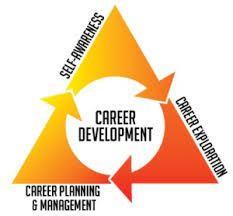 Nicohl Shelton Webb, Ed.S webbmrsn@gmail.com
Nicohl Shelton Webb, Ed.S webbmrsn@gmail.com
It is never too early to begin career exploration with your elementary students. We often hear the words career and college and associate the need for exploration with high school students. Elementary school counselors are often left asking themselves, “Where do I begin?” School counselors are perfectly and uniquely poised to impact student learning, growth, and skill attainment in the areas of employability and career awareness. In 2018, the legislature removed the elementary career readiness requirement in Senate Bill 3, however, as counselors, we understand that it is still our role to ensure that we enhance a student's learning process and to prepare all students for their next steps after high school. In order to help students understand the connection between school and the world of work, the Georgia Department of Education has Career Lessons that incorporate annual activities for students, build in a developmental and sequential progression, integrate learning engagement strategies, and include real-world connections to core concepts. These lessons were created by Elementary, Middle and High School Counselors from all over Georgia. To access these lessons, please log into your account at www.ctaern.org and go to Instructional Resources.
In addition to the career lessons listed above, there are new and different ways that we can expose our students to careers. Some of these ways include putting activities into Google Classroom or Padlet to use during your Instruction, having a traditional career day with Business and Industry professionals, or having virtual career day speakers using technology tools such Flip (formerly Flipgrid) and Nearpod.
Google classroom is not just a tool for teachers. There are tons of features within all of the Google suite apps that are perfect for counselors and just need to be adapted to figure out how it can be used and what will work best for you and for our students. Google Classroom is a way for you to “house” all of your information and activities for your career lessons. Creating classes within Google Classroom will allow you to be able to keep your information in one place and make it easily accessible for students and/or parents. Once all of the information is placed in your classroom, you are able to adjust whatever activity you would like and can even add to them. All of the information will stay there until you archive the classroom. For easy accessibility, just share the class code, invite them to join the class and you will be ready for your Career Instruction.
Having virtual career day speakers is a great way to ensure that your students hear relevant experiences and see speakers that you wouldn’t normally be able to bring into your building during a traditional career day. One of the ways to find speakers is through
the Flip website. Once you have joined, you will have access to various ways to connect your classroom to the world. When I found a Marine Biologist that works with sharks but also is a photographer for National Geographic to share her career with our 2nd grade students, I knew I was onto something. Our students were captivated by the pictures they were shown and the stories about the Marine Biologist’s career and life. Infusing virtual career lessons into my counseling program afforded me the opportunity to expose my students to careers that they might never get a chance to see otherwise.
Never underestimate the power of having a traditional career day for your students. In previous years, I would typically ask my parents, business and industry leaders, community members and have even solicited volunteers through websites such as www.volunteermatch.org in order to gather speakers. Since I only liked to have one crazy day, I scheduled all of my speakers, careers on wheels and virtual speakers for a K-5 Career Day. It is organized chaos, but it was truly one of my favorite days of the year because it is an opportunity to see the joy and awe in my student’s faces as they learn and grow.
Career exploration can sometimes be a daunting task for elementary counselors, especially as they struggle to explain difficult careers to young students. The reward comes when counselors are able to see students interact with professionals and discover new career possibilities they never knew existed. Whether you are planning a traditional career day, exploring virtual career options or doing Instruction through Google Classroom, all of these options allow counselors to #Engage students and show them ways to be career and life ready.


“Don't sit down and wait for the opportunities to come. Get up and make them.”
~ Madam C.J. WalkerServing in various roles in Georgia School Counselors Association (GSCA) has given me the ability to incorporate opportunities to practice leadership and advocacy for the counseling profession. As a member of the organization, there are several opportunities for one to participate in a leadership or advocacy capacity. Whenever I join a professional, social, or another type of group or collaboration, one of my goals is to “give back” to the organization that promotes the growth of the entity itself, its members, and the target population for which it services. To this end, I have attempted to contribute substantially as an advocate and as a leader within statewide, district-wide, and local school counselor initiatives, educational associations, and community mental health coalitions. GSCA leadership is a vehicle that provides this outlet and can provide other school counselors, as it did me, with many opportunities to put service and advocacy for our profession into practice.
I have been a member of GSCA for over eleven years. In 2014, I assumed my first leadership role as the District IV Regional Director of the organization. Since then, I have served in several leadership capacities, culminating in my current position on the Executive Board as the Elementary Director and the overseer for publications. Getting involved in the leadership process has been an enjoyable experience, and I initially had a lot of fear attached to its initiation
However, surrounding myself with other counselor leaders helped me make the wellrewarded decision to seek involvement at more than just a conference participatory level. I have already secured .my next level of service in the organization as a member of the 2023 GSCA Conference Planning Team
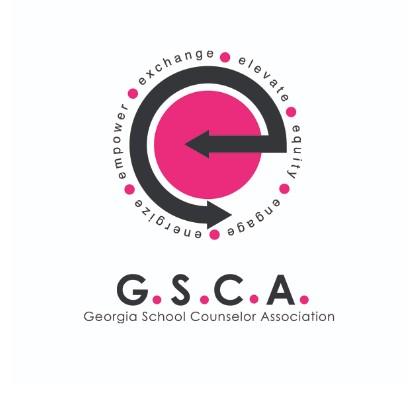
As a call to action, I would like to invite others to seek leadership beyond their current level of involvement.

Participating and leading in this organization has allowed me to contribute to the profession through presentations, publications, collaborative conversations, positive peer relationships, networking, and advocacy. Serving on a committee, presenting at the conference, or participating in our new Idea Exchange Extravaganza are great ways to eminence leadership with GSCA. In addition, the Engagement Extravaganza, another new conference feature to promote leadership, is an excellent avenue to gain information and plug into the vision of GSCA.

Another way to get involved in leadership is to participate in advocacy activities with the organization. For example, GSCA facilitates legislative advocacy efforts on behalf of its members at all levels of government. I have participated in GSCA advocacy activities during National School Counselor’s Week at our state capitol in Atlanta. During this event, school counselors from across the state attend sessions where state legislators address crucial topics impacting education and school counseling. This is also the time when the GSCA advocacy representative provides critical updates on the status of legislation being introduced, stalled in a committee, or on its way to the House or Senate floor for a vote and how that status impacts the organization and membership. School counselors use these opportunities to advocate for GSCA positions on relevant legislative issues and for adequate funding and other resources to support school counseling and the GSCA legislative agenda. The GSCA representatives also conduct trainings for the members on how to promote and bring
awareness to the importance of the counseling profession and its relevancy in our public schools. Finally, the GSCA gathering during National School Counselors Week
is a time of recognition, honor, and celebration of the profession and its accomplishments. I am excited about this upcoming event next year and the previously mentioned opportunities. I intend to continue to pursue leadership roles in GSCA as this is one of my professional vehicles for advocating for and supporting our profession. Please consider joining this transformative leadership and advocacy experience.
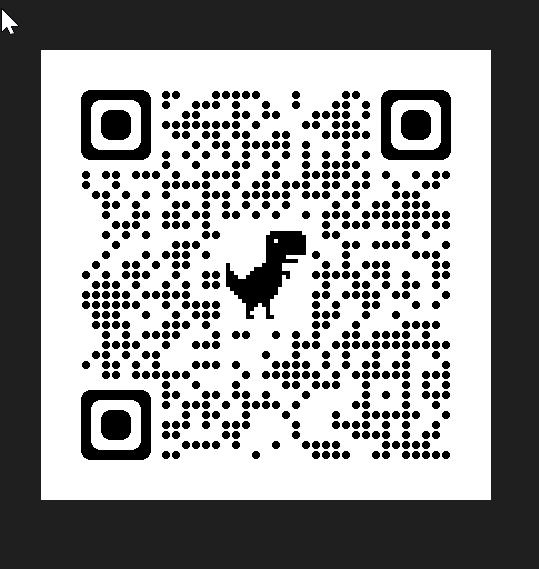
shunae82@gmail.com
Relational aggression continues to be a pervasive problem that can have a lasting impact on all individuals involved (Gomes, 2011). The act of relational aggression is most often associated with behaviors exhibited in females as opposed to males due to its less physical and subtle nature. Relational aggression is very covert, often going undetected in many instances and in various settings. The boys will be boys, girls will be girls mentality is a major indicator for the obliviousness of the less physical, more covert form that we have grown to know as relational aggression. The intended goal of this article is to use the information to assist those in the counseling profession to equip parents and other adults with tools to help recognize and address concerns of relational aggression early on in an effort to teach resilience and prosocial behaviors to youth.
So many factors help fuel relational aggression. Methods such as Snapchat, Facebook, Instagram, cell phones, email, etc have only helped expand ways for bullies to harass, aggressively talk to and gossip about their peers, and use verbal attacks on virtual platforms. Although there has been extensive research on the topic of bullying and aggression, there still tends to be inconsistencies with gaining control of this phenomena.
The effects of RA can be equally as harmful as the effects of physical aggression because females view friendships and social status as more important than males as they are most affected by relational aggression (Casey-Cannon et al., 2001). Effects of relational aggression have been shown to cause mental and emotional damage to those on the receiving end, leaving the possibility of more harmful lasting effects than physical aggression (Hottle, Nelson, Warburton, Young & Young, 2011).
The school setting provides children with time to interact socially with peers throughout the school day and has been viewed as a common place for the existence of aggression. Not only does relational aggression impact the school but the school also impacts relational aggression. At school students often tease or gossip about one another in regard to the way they look or dress, their lack of understanding academic concepts, or the social circle that they choose to engage with. Relational aggression is known as being more difficult to detect than physical aggression. This inconspicuous form of aggression has been found to occur in the classroom as well as less structured times such as before and after school, transition periods, developmental play and lunch time. Teachers are often oblivious to relationally aggressive actions because of the times or places that students tend to engage in these behaviors. When it occurs within the classroom it is discreet and quiet.
It is often school counseling professionals who are left to address these covertly mean and aggressive behaviors. Working with students about relational aggression can often be very time consuming and lead to further feelings of hurt and frustration. While we have the opportunity to engage directly with students in this process to help them learn how to establish healthy relationships and communication skills, the issue of relational aggression continues to exist. Here are a few tips that help counselors teach students to address relational aggression:
1. Teach Conflict Resolution Skills and Empowerment: helping children learn healthy ways to address conflict can help them to address peer conflict and relationally aggressive tactics on their own in future occurrences. Some books that help teach resilience are Girls in Real Life Situations (Grades K-5), Building Champions: A Small Group Curriculum for Boys (Grades 3-9), and Starbound (Grades 3-9). All of these options have scripted lessons and activities to help teach resilience, empowerment, and teamwork.
2. Implement a School Wide Protocol to Report Relational Aggression: It is vital that students feel heard and that they know their feelings are valid. Implementing a reporting system helps students feel supported and know bullying of all types is taken seriously.
3. Model Appropriate Behavior: When adults model patterns of positive interaction and behavior, children and adolescents may be better able to learn how to develop and maintain healthy relationships through exposure.
References
American Counseling Association (2014). ACA code of ethics. Alexandria, VA: Author. Casey-Cannon, S., Hayward, C., & Cowen, K. (2001). Middle-school girls reports of peer victimization: Concerns, consequences, and implications. Professional School Counseling, 5, 135-147. Gomes, M. M. (2011). Examining the coping response to peer relational aggression victimization. Nursing Research and Practice, 1-7. doi:10.1155/2011/473980 Hottle, A., Nelson, D., Warburton, B., Young, B., Young, E. (2011). Relational aggression among students. Prakken Publications, 24-29.
Sawyer, J. L., Mishna, F., Pepler, D., & Wiener, J., (2011). The missing voice: Parents’ perspectives of bullying. Children and Youth Services Review, 33(10), 1795-1803.
at

creating an
of sexual
expression, feel safe and
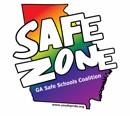
feel hesitant to
students and families
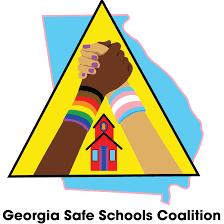
in working with
Others may
powerless to change the